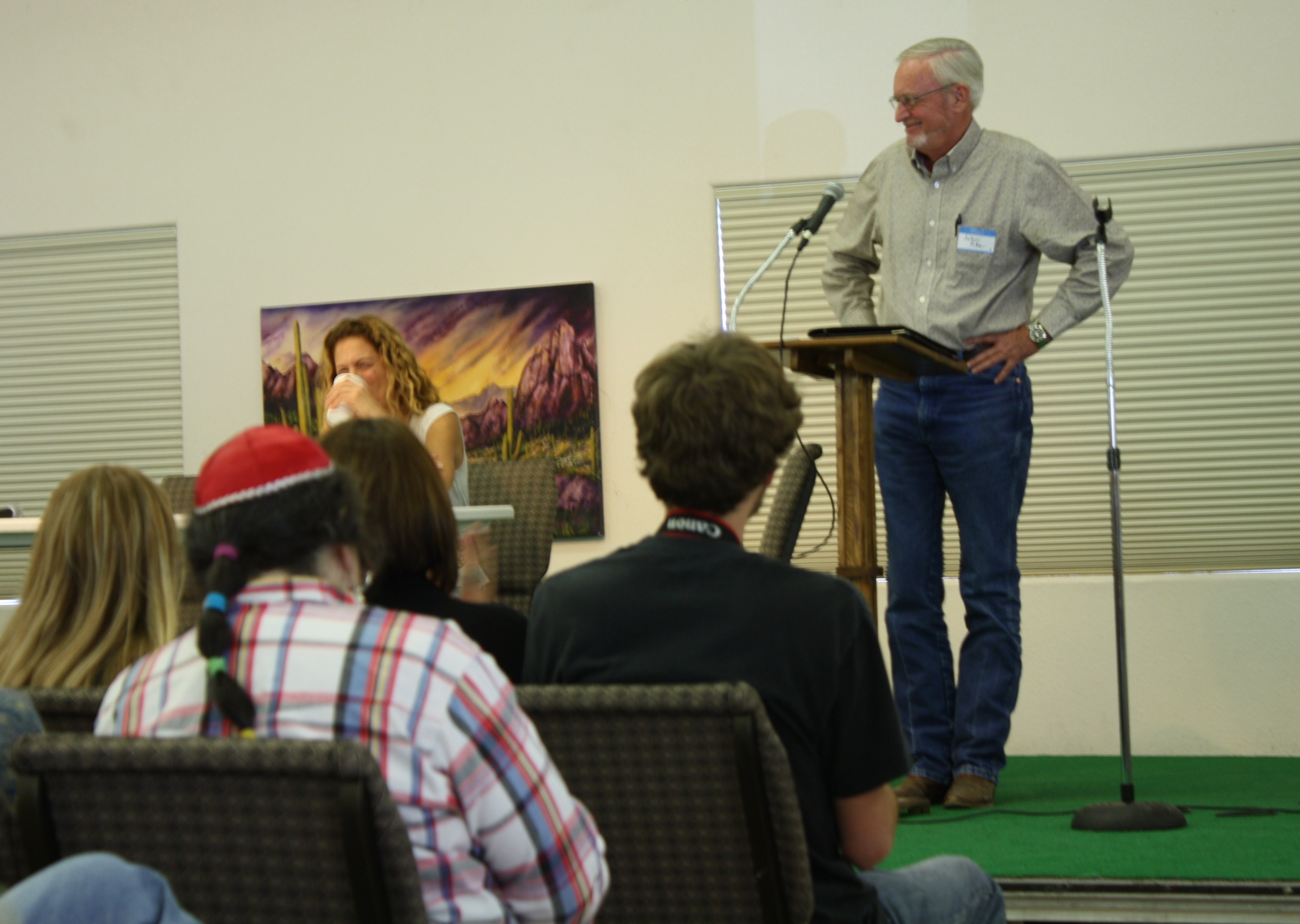Border activists called for commemoration and continuation of community organizing in Tucson during a conference marking milestone anniversaries of several local humanitarian groups.
The 2-day event, called “The Struggle Continues,” was hosted by Southside Presbyterian Church, BorderLinks and Samaritans on Nov. 30 and Dec. 1. More than 100 people gathered at Most Holy Trinity Parish to hear local and national speakers as well as participate in breakout “strategy” sessions.
Several local groups and movements have important anniversaries in 2012. The Sanctuary Movement, during which churches provided refuge to Central Americans fleeing wars, is marking 30 years from the day Southside Presbyterian Church was the first to declare itself a sanctuary in 1982.
BorderLinks grew out of the movement 25 years ago to provide workshops and other social justice programs in the community. Ten years ago, volunteers formed Samaritans and began patrolling the desert to provide aid to migrants in distress.
The theme of the conference was celebrating these efforts while determining how to continue fighting for human rights on the border.
“Tucson is critical,” said Alexia Salvatierra, a keynote speaker at the event. “Tucson is Memphis (in) the Civil Rights Movement. But how is Tucson going to work with the rest of us?”

Salvatierra, a Lutheran pastor who has organized religious leaders around immigration reform, said her church in Berkley, Calif., was inspired to become a sanctuary church in the 1980s based on the Tucson movement. Tucson must continue sharing the reality of the border with other parts of the country, she said.
“No one who’s not from the border really understands the border,” Salvatierra said. “We’re counting on you.”
The conference also featured words from activists instrumental in the Sanctuary Movement, including John Fife, a founder of the movement, and Lupe Castillo, who helped lead the Manzo Area Council. The neighborhood group provided legal aid to people before and during the Sanctuary Movement.
Castillo said the work of organizations originate based on the needs of people. The Manzo Council shifted its work to sanctuary when a woman from El Salvador showed up at with a bullet in her leg.
“It was the Central Americans who said to us, ‘We are here,’” Castillo said.
She called on the audience to turn to youth as the new leaders of change, referencing DREAM Act activists and other young speakers at the event.
Breakout discussion sessions were interspersed with the presentations. Facilitators led small groups of people with the goal of creating a new vision for Southern Arizona, said Alison Harrington, pastor of Southside Presbyterian Church who helped organize the event.
“It’s our voices that must be heard in this conference,” she said.
The title of the conference — la lucha sigue, or the fight continues — holds true when it comes to protecting human rights on the border, Castillo said.
“We have a long struggle up ahead,” she said. “And it’s an intense struggle.”

